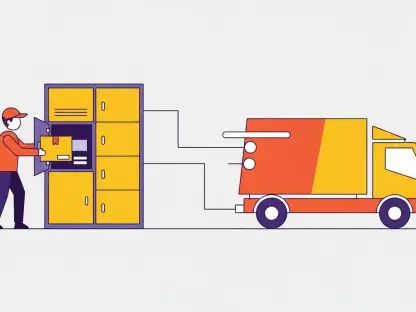As the retail industry continues to evolve, The Foschini Group (TFG) has emerged as a leader in transforming omnichannel fulfillment efficiency by leveraging cutting-edge technology to set new benchmarks in supply chain management. This market analysis explores the strategies employed by TFG, delving into how they integrate intelligent automation and strategic partnerships to enhance fulfillment operations. The purpose of this analysis is to shed light on TFG’s initiatives and their implications for the broader retail sector.
Strategic Technological Integration
In today’s dynamic retail environment, technological integration has become imperative for success. TFG’s approach is characterized by significant advancements within their Riverfields Distribution Centre in Gauteng, South Africa. They have partnered with FORTNA to implement state-of-the-art automation systems that streamline processes such as goods receipt, picking, and dispatch. This technological leap enhances efficiency, accuracy, and scalability, meeting both e-commerce and traditional retail needs. By consolidating operations within their expansive facility, TFG effectively navigates the challenges of fulfilling a diverse range of orders across multiple retail channels.
Adaptive Inventory Management
Another pivotal component of TFG’s strategy is their inventory management transformation. With a shift from forecast-driven to demand-driven operations, TFG synchronizes inventory allocation with real-time consumer demand. This transition reduces overstock scenarios and optimizes supply chain dynamics, aligning resources in accordance with actual market demand. The integration of RFID technology for item identification further bolsters inventory accuracy, facilitating precise management and reducing markdown occurrences. By embracing real-time data analytics for inventory decisions, TFG positions itself for adaptability and responsiveness in a competitive landscape.
Customizable Fulfillment Solutions
Tailoring fulfillment processes to accommodate varying order types and sizes is crucial for operational flexibility. TFG exemplifies this adaptability through its custom solutions at Riverfields DC. By employing methods such as the “put-to-store” model for larger shipments and manual processing for smaller orders, TFG ensures efficient distribution regardless of order volume. The dynamic allocation of modular systems allows for increased throughput during peak periods like holiday seasons, maintaining service quality even amidst fluctuating demand. Such innovations emphasize the importance of adaptable fulfillment strategies in enhancing retail operations.
Market Implications and Future Considerations
TFG’s transformative initiatives in omnichannel fulfillment create ripple effects across the retail industry. As emerging technologies like augmented reality and advanced analytical tools gain traction, TFG’s commitment to innovation sets a precedent for future strategic planning. Economic and regulatory factors will shape the trajectory of retail logistics, necessitating agility in response to evolving conditions. TFG’s approach exemplifies the importance of aligning technological and operational strategies with market trends, providing valuable insights into the future of retail fulfillment.
Conclusion
The Foschini Group displayed innovative strategies, highlighting pivotal aspects of modern omnichannel fulfillment. Their integration of intelligent automation, real-time inventory management, and custom fulfillment processes showcased the potential of technology-driven supply chain improvements. These initiatives not only enhanced operational efficiency but also fortified TFG’s competitive edge, offering relatable insights for industry stakeholders seeking similar advancements. By maintaining a focus on adaptability and customer-centricity, TFG set a strong precedent for future retail strategies, emphasizing the necessity of embracing technological evolution in sustaining market leadership.









